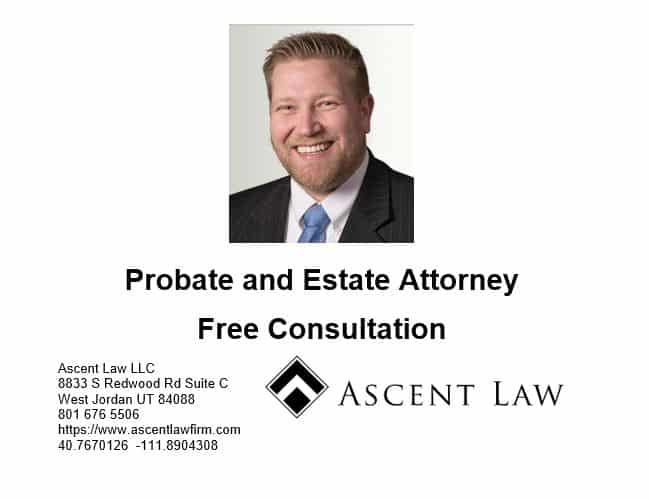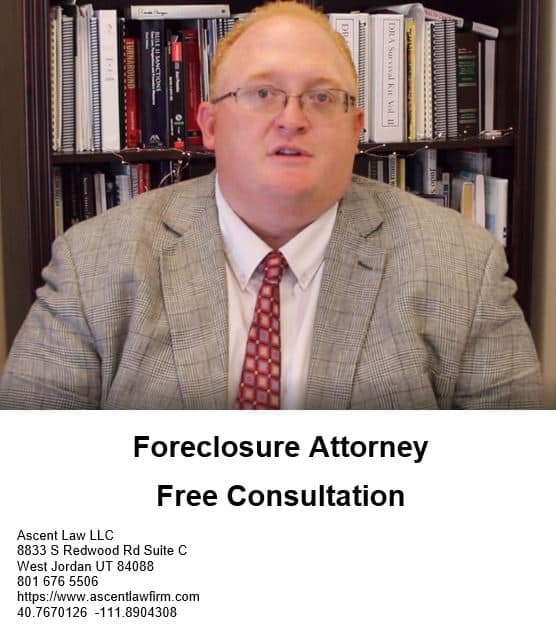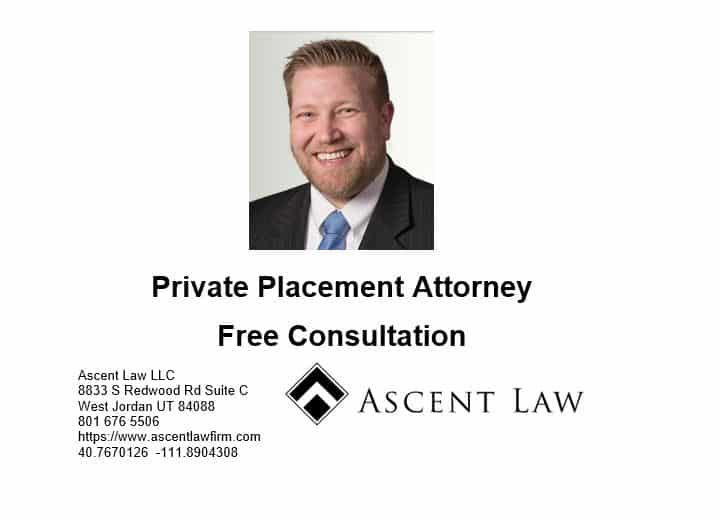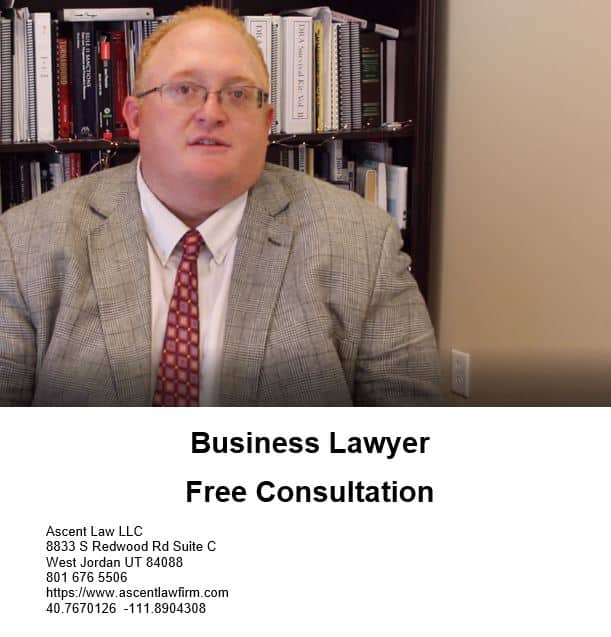
Probate is the official way that an estate gets settled under the supervision of the court. A person, usually a surviving spouse or an adult child, is appointed by the court if there is no Will, or nominated by the deceased person’s Will. Once appointed, this person, called an executor or Personal Representative, has the legal authority to gather and value the assets owned by the estate, to pay bills and taxes, and, ultimately, to distribute the assets to the heirs or beneficiaries. The purpose of probate is to prevent fraud after someone’s death. Imagine everyone stealing the castle after the Lord dies. It’s a way to freeze the estate until a judge determines that the Will is valid, that all the relevant people have been notified, that all the property in the estate has been identified and appraised, that the creditors have been paid and that all the taxes have been paid. Once all of that’s been done, the court issues an Order distributing the property and the estate is closed. Not all estates must go through probate though.
First, if an estate falls below a certain threshold, it is considered a “small estate” and doesn’t require court supervision to be settled. Click here to find out Utah’s small estate threshold and procedure. Second, not all assets are subject to probate. Some kinds of assets transfer automatically at the death of an owner with no probate required. The most common kinds of assets that pass without probate are:
• Joint Tenancy assets-when one joint tenant dies, the surviving joint tenant becomes the owner of the entire asset, without the need for a court order. This is called “right of survivorship.” For example, if a house is owned this way, “Jane Sage and John Sage, as joint tenants,” and Jane dies, John owns the entire house.
• Tenancy by the Entirety or Community Property With Right of Survivorship-these are forms of property ownership that function like joint tenancy, in that the survivor owns the entire property at the death of the other tenant, but are only available to married couples.
• Beneficiary Designations-retirement accounts and life insurance policies have named beneficiaries. Upon the death of the account or policy owner, these beneficiaries are entitled to the assets in the account or the proceeds of the policy.
• Payable on Death Accounts/Transfer on Death Accounts-bank and brokerage accounts can have designated beneficiaries, too. The account owner can fill out forms to designate who should receive the account assets after their death.
Third, if a decedent had created a Living Trust to hold his or her largest assets, than that estate, too, won’t go through probate, unless the assets left outside of the trust add up to more than Utah’s small estate limit. That, in fact, is why that Living Trust was created, to avoid probate after the death of the trust’s Grantor. But for estates in Utah that exceed the small estate’s threshold, and for which there is either no Will, or a Will (but not a Living Trust), probate will be required before an estate can be transferred to the decedent’s heirs or beneficiaries. The general procedure required to settle an estate via probate in Utah is set out in a set of laws called the Uniform Probate Code, a set of probate procedures that has been adopted, with minor variations, in 15 states, including Utah. In Utah, under the UPC there are three kinds of probate proceedings: informal, unsupervised, and supervised formal.
Informal Probate In Utah County
Most probate proceedings in Utah are informal. You can use it when the heirs and beneficiaries are getting along, there are no creditor problems to resolve and you don’t expect any trouble. The process begins when you file an application with the probate court to serve as the “personal representative” of the estate. (This is what most people think of as the “executor”). Once your application is approved, you have legal authority to act for the estate. Usually you’ll get what’s called “Letters Testamentary” from the court.
Once you get the letters, you need to do these things:
• Send out formal notice to heirs, beneficiaries, and creditors that you know of
• Publish a notice in a local newspaper to alert other creditors
• Provide proof that you’ve mailed notices and published the notice
• Prepare an inventory and appraisal of the estate’s assets
• Keep all the property safe
• Distribute the property (when the estate closes)
Once the property’s been distributed, you close an informal proceeding by filing a “final accounting” with the court and a “closing statement” that says you’ve paid all the debts and taxes, distributed the property, and filed the accounting.
Unsupervised Formal Probate In Utah County
A formal probate, even an unsupervised one, is a court proceeding. That means that a judge must approve certain actions taken by the Personal Representative, such as selling estate property, or distributing assets, or paying an attorney. The purpose of involving a judge is to settle disputes between beneficiaries over the distribution of assets, the meaning of a Will, or the amounts due to certain creditors. The informal probate process won’t work if there are disputes, so that’s when the court gets involved.
Utah County Supervised Formal Probate
A supervised formal probate is one in which the court steps in to supervise the entire probate process. The court must approve the distribution of all property in such a proceeding.
When Is Probate Necessary In Utah County?
If the decedent owned assets (such as a home or other real property, bank accounts, or investments) titled solely in his or her name and without a valid beneficiary designation, probate is necessary to sell these assets or distribute them to the beneficiaries or heirs. With the decedent gone, only a personal representative has authority to sign the deed or other document transferring title to these assets. The one exception is when the estate is under $100,000, and therefore a small estate affidavit can be used to collect the decedent’s assets.
What property can be transferred without a probate?
Any of the decedent’s untitled property, such as personal and household possessions, valuables, or money, can be transferred without a probate. Doing so, however, may subject such property to the claims of the decedent’s creditors. In addition, several types of property pass outside of probate because they have a built-in transfer mechanism that does not involve probate. Such property includes:
• Jointly owned assets, such as a joint bank account or a home or other real estate owned as joint tenants with rights of survivorship
• POD (Pay on Death) bank accounts or TOD (Transfer on Death) stock brokerage accounts
• Insurance proceeds, including life insurance and accidental death benefits
• Death benefits of annuities, pension plans, and retirement accounts, including IRAs and 401(k)s
• Property held by a trustee of a living trust
When else should probate be considered?
Even if the decedent did not own titled property that requires a probate to be transferred, you should still consider a probate if:
• The decedent left unpaid debts, and you want to cut off potential claims of the decedent’s creditors.
• There is a dispute over who is entitled to the decedent’s property.
• The decedent had a last will, which you want to be able to enforce in court. A will that is not probated is not legally enforceable.
• The decedent’s estate needs to make an income tax or estate tax election. (Usually, only a personal representative can make this election.)
• The person dealing with the decedent’s property wants to be discharged from liability to the heirs and beneficiaries after the property is distributed.
Letters testamentary is a one-page document issued by the court stating that the personal representative has been duly appointed. If someone tells you they will not release an asset of the decedent without letters testamentary, it means they want to deal only with a personal representative.
What Are My Probate Options?
• Small Estate Affidavit: You may be able to avoid filing a probate by signing a small estate affidavit, which can be used to collect a decedent’s Utah property, except real estate, if the net value of the decedent’s property subject to probate does not exceed $100,000. A small estate affidavit is not legally available, however, until 30 days after the decedent’s death.
• Filing Options: If filing a Utah probate cannot be avoided, the most common filing options are: Informal probate, which is generally appropriate for simple, uncontested estates and usually costs less than a formal probate because no attorney travel or in-court time is required. In some circumstances, the decedent’s relatives may be required to sign written consents to this process. Formal probate, which is appropriate for estates in which the right of the person seeking appointment as personal representative is contested or in which some other dispute may arise. Formal probate requires an in-court hearing, which the attorney (but not the client) is required to attend.
• Ancillary probate for out-of-state decedents: This option can be used when (a) the decedent resided outside Utah at the time of death, (b) a probate has been filed there, and (c) the decedent owned Utah real estate or other property that needs to be sold.
Avoiding Probate and Estate Taxes
There are several ways property can avoid probate, including:
• Assets owned as joint tenants with rights of survivorship: All property left to a surviving spouse avoids probate and federal estate tax. This includes assets such as a bank account or a home or other real estate that are owned as joint tenants with rights of survivorship.
• Pay-on-death bank accounts or transfer-on-death stock brokerage accounts: The proceeds from these accounts go to the beneficiary you name probate free, as long as that doesn’t conflict with other components of your estate plan.
• Insurance proceeds, including life insurance and accidental death benefits: These proceeds bypass probate but will be subject to estate taxation unless the insurance policy is held by an irrevocable trust.
• Property held by a trustee of a living trust: If the living trust is revocable, its assets may bypass probate and go directly to beneficiaries, but those assets will be subject to estate taxation. If the living trust is irrevocable, then the assets are not part of the estate and may bypass not only probate but also estate taxation.
• Property held by a charitable, special-needs or other irrevocable trust: As with the irrevocable living trust, property that belongs to an irrevocable charitable or special-needs trust is free from probate and estate taxation.
• Death benefits of annuities, pension plans and retirement accounts: Money inherited from company pensions and 401(k)s, and even individual retirement accounts (IRAs), is not subject to probate, but is subject to estate tax consideration. Because the IRA has been funded with pre-tax dollars, IRA beneficiaries are also liable for income taxes due when the funds are withdrawn.
Do I need to apply for grant of probate?
In the vast majority of cases, you’ll need to apply for grant of probate before you can settle someone’s affairs. However, it may not be necessary if the deceased’s estate was worth less than £15,000, or if their assets were held jointly and are passing to a surviving spouse or civil partner.
What if probate is contested?
There are several ways which probate could be contested, which could prevent you from being given a grant of probate. In some cases, a beneficiary or relative of the deceased may enter a caveat, which can prevent or delay probate being granted. This might happen if two people are entitled to apply for probate, or if there are questions about the legitimacy of the will. Otherwise, it is a matter for the courts to resolve, so that probate can be granted to whichever party it deems appropriate.
Who is responsible for handling probate?
In most circumstances, the executor named in the will takes this job. If there isn’t any will, or the will fails to name an executor, the probate court names someone (called an administrator) to handle the process. Most often, the job goes to the closest capable relative or the person who inherits the bulk of the deceased person’s assets. If no formal probate proceeding is necessary, the court does not appoint an estate administrator. Instead, a close relative or friend serves as an informal estate representative. Normally, families and friends choose this person, and it is not uncommon for several people to share the responsibilities of paying debts, filing a final income tax return and distributing property to the people who are supposed to get it.
Should I plan to avoid probate?
Probate rarely benefits your beneficiaries, and it always costs them money and time. Probate makes sense only if your estate will have complicated problems, such as many debts that can’t easily be paid from the property you leave. Whether to spend your time and effort planning to avoid probate depends on a number of factors, most notably your age, your health, and your wealth. If you’re young and in good health, adopting a complex probate-avoidance plan now may mean you’ll have to re-do it as your life situation changes. And if you have very little property, you might not want to spend your time planning to avoid probate because your property may qualify for your state’s simplified probate procedure. Probate is the court-supervised process of authenticating a last will and testament if the deceased made one. It includes locating and determining the value of the person’s assets, paying their final bills and taxes, and distributing the remainder of the estate to their rightful beneficiaries.
When Is The Probate Process Required?
Each state has specific laws in place to determine what’s required to probate an estate. These laws are included in the estate’s “probate codes,” as well as laws for “intestate succession,” when someone dies without a will. In cases where there is no will, probate is still required to pay the decedent’s final bills and distribute their estate. The steps involved are generally very similar, regardless of whether a will exists—even though laws governing probate can vary by state.
Utah County Probate Lawyer Free Consultation
When you need legal help with Utah County Probate, please call Ascent Law LLC for your free consultation (801) 676-5506. We want to help you.
8833 S. Redwood Road, Suite C
West Jordan, Utah
84088 United States
Telephone: (801) 676-5506
Recent Posts
What Are The Advantages Of Private Placement?
When Is It Right To Seek Full Custody?





